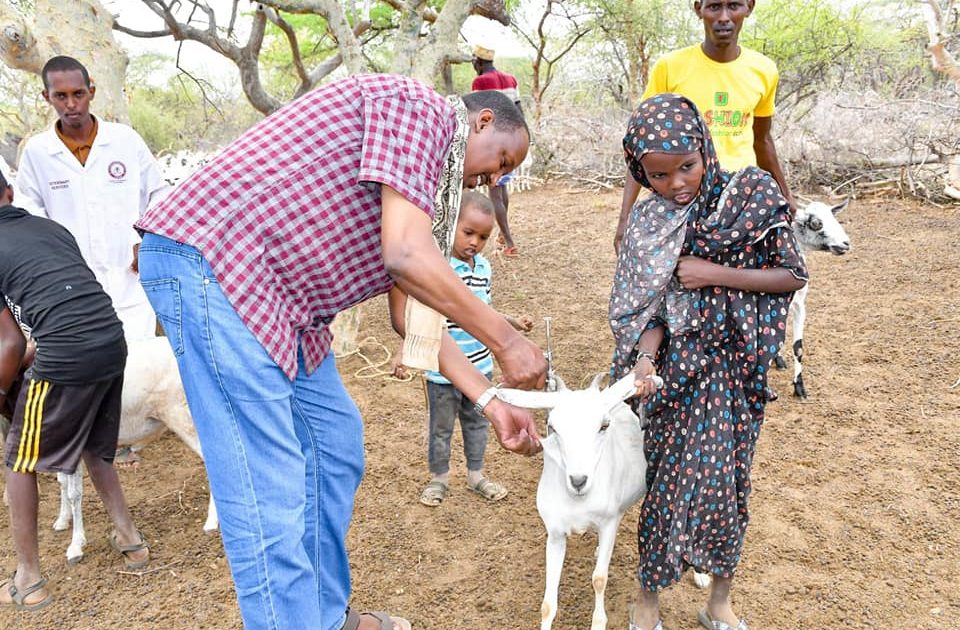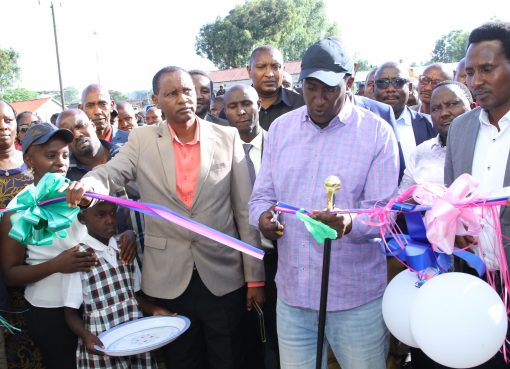More than 48,000 livestock have been vaccinated against goat plague (Jadheca) in an on-going joint exercise launched last week by Garissa County government in collaboration with the Save the Children International.
County Director for Livestock Dr. Haret Hambe said the exercise that kicked off in Balambala Sub County is expected to successfully achieve the targeted numbers of over 600,000 heads of cattle during this quarter.
“The county government is working with other partners to support similar activities and we hope to extend the exercise to all sub counties,” said Dr Haret.
He said the on-going exercise was necessitated by increased reports of flare up of diseases and pests such as bovine pleuropneumonia (CBPP), black quarter, anthrax, peste des petits ruminant (PPR or sheep and goat plague) following convergence of animals in areas that receives rains.
Dr Haret further said other services bundled with the vaccination campaign included deworming of all covered animals, application of tick control chemicals, animal health extension and surveillance and reporting of diseases.
The vaccination drive comes at a time when the county is also doing an awareness campaign to sensitize stakeholders on “Ufugaji Bora, Maisha bora” social and behavior change towards improving livestock yields.
Teams from the County Livestock Department, and its partners Livestock Marketing Systems (LMS) and APN Consultants are conducting a three day training of trainers’ workshop which would develop an implementable work plan for carrying out the campaign at the grassroots levels.
According to the Deputy Director for Livestock Joel Okal, the trainers would be equipped with information and skills to be used at the grassroots level in advocating for positive social and behavioral change among pastoralists.
Some of the social and environmental norms being targeted in the campaign are to have the producers adopt promoted animal health technologies, thereby increasing the health and value of their livestock, and use high quality feed on a regular basis for feeding their livestock.
Farmers are also urged to sell their livestock through aggregation channels like farmers groups and saccos, adopt improved hygienic milking, handling and preservation practices and regularly consume animal source foods from the purchase or own production.
According to John Kutwa of LMS, the campaign aims at changing local pastoralists from depending on relief modalities to adopting modern commercial animal rearing practices.
This will enable the communities to realize the Sh.50 billion annual income potential which currently is being eroded by use of bygone social and behavior practices.
By Erick Kyalo





